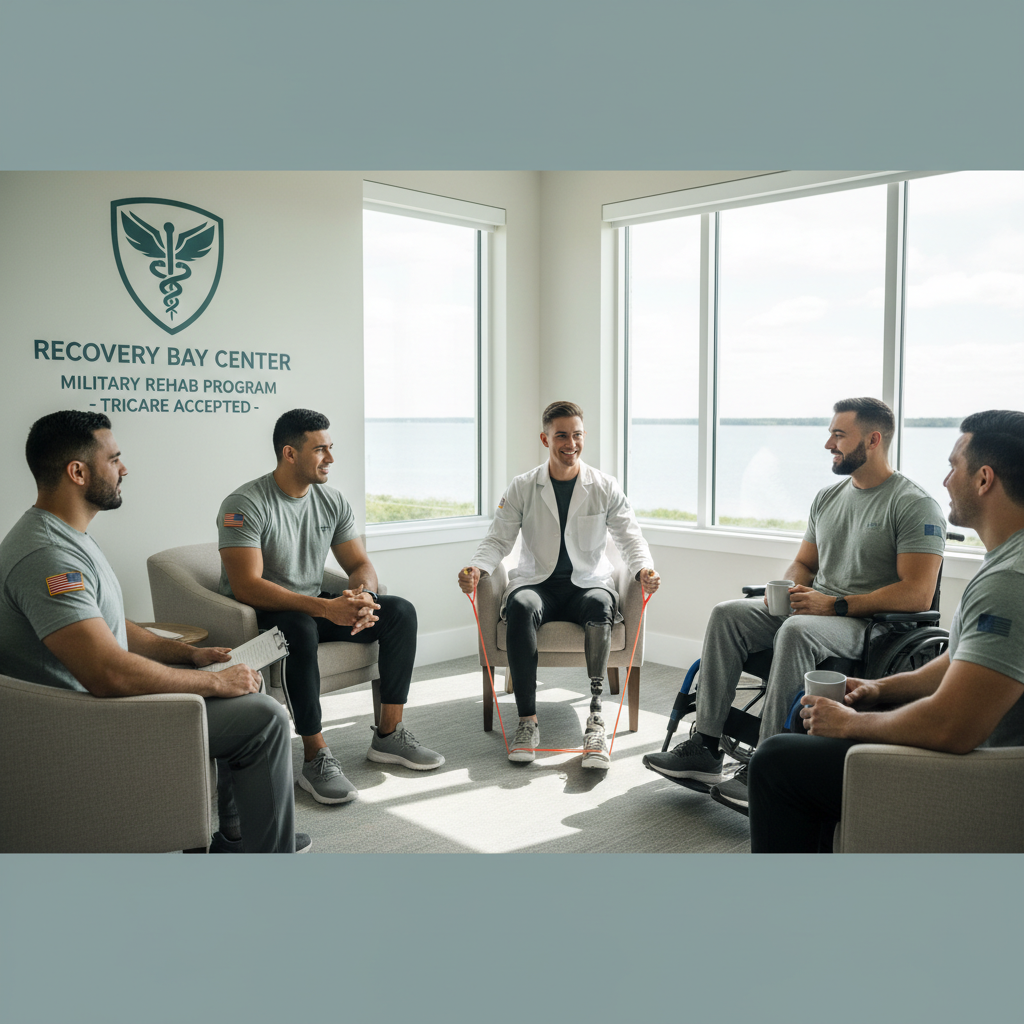Treating Drug Addiction
Understanding Addiction
Drug addiction, clinically known as substance use disorder, is a complex disease that significantly impacts an individual’s brain and behavior. Those affected often find themselves unable to control their usage of legal or illegal substances, including alcohol, marijuana, and nicotine. As addiction progresses, it alters the brain’s normal functionality, which can contribute to a vicious cycle of increased dependence (Mayo Clinic).
Addiction can develop through various pressures, often starting with experimental use and escalating into a compulsion for some individuals. This process may also begin unintentionally through the use of prescribed medications, particularly opioids. The addiction cycle can be challenging to break without appropriate support and treatment.
Risks of Substance Abuse
The risks associated with substance abuse are substantial and can lead to severe health consequences, including addiction and even death. Synthetic drugs such as K2, Spice, and bath salts are notably concerning, as they can produce unpredictable effects due to a lack of quality control and unknown ingredients. Their highly addictive nature makes them particularly dangerous (Mayo Clinic).
Different substances carry varying risks of addiction. Opioids, for example, have a higher propensity for addiction and may cause a rapid onset of dependency. Signs of addiction or substance use disorder may include the need for larger doses to achieve desired effects, reliance on drugs to feel normal, and experiencing withdrawal symptoms when attempting to quit.
| Type of Risk | Description |
|---|---|
| Health Effects | Severe mental and physical health issues, including the possibility of death. |
| Dependency | Increased tolerance and dependence on substances, leading to a cycle of addiction. |
| Behavioral Changes | Significant changes in behavior, often including neglect of responsibilities and relationships. |
Choosing Recovery Bay Center for drug and alcohol detox ensures a therapeutic environment with comprehensive support tailored to individual needs. This approach helps patients navigate through the complexities of addiction, equipping them with the tools needed for recovery.
Nutritional Impact of Drug Use
Understanding the nutritional effects of substance use is vital for recovery. Various drugs can lead to significant deficiencies and health changes that impact both physical and mental well-being. We will explore the effects of alcohol, stimulants, and marijuana on nutrition.
Alcohol and Nutritional Deficiency
Alcohol is a major contributor to nutritional deficiency in the United States. Regular alcohol consumption can lead to a depletion of vital nutrients, specifically B vitamins. Deficiencies in these vitamins can result in serious conditions such as Wernicke-Korsakoff syndrome due to low vitamin B1 levels (MedlinePlus).
| Nutrient | Impact of Alcohol Use |
|---|---|
| Vitamin B1 (Thiamine) | Deficiency can lead to Wernicke-Korsakoff syndrome |
| Vitamin B6 | Impaired absorption, leading to anemia |
| Vitamin B12 | May cause nerve damage and cognitive issues |
| Folate | Increased risk of anemia and birth defects |
Since alcohol impairs nutrient absorption, we prioritize nutrition in our recovery programs to help restore balanced diets for our clients.
Stimulant Use and Nutrition
Stimulants, such as crack, cocaine, and methamphetamine, can severely affect one’s appetite, resulting in significant weight loss and nutritional deficiencies. Long-term use can lead to dehydration, electrolyte imbalances, and even permanent cognitive issues (MedlinePlus).
| Nutritional Concern | Effect of Stimulant Use |
|---|---|
| Appetite Suppression | Results in weight loss and poor nutrition |
| Dehydration | Can lead to kidney issues and muscle cramps |
| Electrolyte Imbalances | May cause heart and neurological complications |
In treatment, we focus on restoring healthy eating habits to combat these nutritional losses.
Marijuana and Weight Management
Marijuana use often leads to increased appetite, commonly known as “the munchies.” While this can aid in gaining weight, it may encourage unhealthy eating habits if not managed. Long-term users should consider reducing fat, sugar, and overall calorie intake to maintain a healthy weight (MedlinePlus).
| Marijuana Effect | Potential Outcome |
|---|---|
| Increased Appetite | May lead to weight gain |
| Cravings for High-Calorie Foods | Risk of unhealthy weight management |
In our recovery programs, we provide guidance on balanced nutrition tailored to individual needs, which may include meal plans emphasizing the quality of calories consumed.
By understanding these nutritional impacts, we can better address the needs of those undergoing drug and alcohol detox. Our aim is to provide comprehensive care that supports both nutritional health and recovery.
Importance of Nutrition in Recovery
In our journey toward recovery, nutrition plays a vital role in supporting both physical and mental health. By focusing on balanced nutrition, we can significantly enhance the recovery process and reduce the risk of relapse.
Nutrition and Mood Improvement
Proper nutrition is crucial for individuals recovering from substance use issues, including those undergoing drug and alcohol detox. A healthy diet can improve mood and overall well-being, making individuals less likely to relapse. Essential nutrients support brain function and can counteract the imbalances caused by substance abuse. Regular meals also prevent blood sugar fluctuations that might affect mood stability.
Maintaining a balanced diet with adequate vitamins and minerals can significantly impact mental health. Below is a table summarizing key nutrients that support mood and their food sources:
| Nutrient | Function in Mood Support | Sources |
|---|---|---|
| Omega-3 Fatty Acids | Supports brain health and mood | Fatty fish, flaxseed, walnuts |
| B Vitamins | Boost energy and reduce fatigue | Whole grains, eggs, spinach |
| Vitamin D | Supports mood regulation | Sunlight, fortified foods |
| Magnesium | Reduces anxiety and promotes relaxation | Nuts, seeds, legumes |
Preventing Relapse through Nutrition
Nutrition also plays a critical role in preventing relapse. Regular meals help maintain stable energy levels and prevent cravings that could lead to substance use. Dehydration is common during recovery, making it essential to ensure adequate fluid intake during and between meals (MedlinePlus). Developing healthy eating habits and avoiding high-calorie foods with low nutritional value supports lasting recovery.
The following table highlights some healthy dietary practices to consider during recovery:
| Practice | Benefits |
|---|---|
| Regular meal times | Helps stabilize energy levels |
| Balanced meals with lean proteins | Supports overall health |
| Hydration with water or herbal teas | Aides recovery and reduces cravings |
| Avoiding processed foods | Reduces risk of nutritional deficiencies |
By prioritizing nutrition and making mindful dietary choices, we can enhance our recovery journey and improve our chances of maintaining sobriety. Support from programs such as residential addiction treatment or dual diagnosis treatment can be instrumental in establishing and maintaining these healthy habits.
Effective Treatment Approaches
At Recovery Bay Center, we believe in a comprehensive approach to recovery from substance use disorders. Our effective treatment strategies incorporate behavioral therapies, medications for alcohol use disorder, and support groups, all designed to facilitate a successful detox and rehabilitation experience.
Behavioral Therapies
Behavioral therapies are essential in drug addiction treatment. They help individuals modify their attitudes and behaviors related to substance use, enabling them to better manage stressful situations and trigger occurrences that could lead to relapse. These therapies enhance the effectiveness of medications and facilitate longer retention in treatment (National Institute on Drug Abuse).
| Benefits of Behavioral Therapies |
|---|
| Modify attitudes toward substance use |
| Improve stress management skills |
| Strengthen coping mechanisms |
| Enhance medication effectiveness |
Implementing behavioral therapies enables us to tailor treatment to individual needs, supporting a more holistic recovery process.
Medications for Alcohol Use Disorder
We understand that detoxification alone is not sufficient for long-term recovery. Medications play a crucial role in aiding individuals during the detox process and throughout their treatment journey. These medications help ease withdrawal symptoms and cravings, which can support ongoing recovery and reduce the likelihood of relapse (National Institute on Drug Abuse).
| Types of Medications | Purpose |
|---|---|
| Acamprosate | Reduces cravings and withdrawal symptoms |
| Disulfiram | Creates adverse reactions when alcohol is consumed |
| Naltrexone | Blocks effects of alcohol, reducing urge to drink |
We focus on ensuring that our clients receive tailored medication-assisted treatments that align with their specific recovery needs.
Support Groups in Recovery
Participation in support groups is a crucial aspect of recovery. Support groups foster a sense of community, helping individuals cope with alcohol-related issues and providing a platform for sharing experiences. We recommend that our clients engage in support groups as part of their ongoing recovery, and we provide resources to connect with these communities, often available online (Mayo Clinic).
| Benefits of Support Groups |
|---|
| Sense of belonging |
| Shared experiences and strategies |
| Reduces feelings of isolation |
| Provides accountability and encouragement |
At Recovery Bay Center, we prioritize a comprehensive approach to addiction recovery, providing our clients with access to behavioral therapies, medications, and support networks to facilitate their healing journey. By addressing the whole person, we aim to meet their medical, mental, and social needs to promote successful recovery. For more information on our services, including medical detox and various treatment options, please feel free to explore our resources.
The Detoxification Process
The detoxification process is a crucial first step in overcoming drug and alcohol dependency. It sets the foundation for recovery by clearing substances from the body while managing withdrawal symptoms.
Duration of Detox
The duration of the detox process can vary significantly based on several factors, including the substance used, length of use, frequency of use, and individual physical dependence. Typically, detoxing from drugs or alcohol takes between 3 to 10 days Addiction Center.
| Substance | Typical Detox Duration |
|---|---|
| Alcohol | 3 – 10 days |
| Opioids | 5 – 7 days |
| Benzodiazepines | 5 – 14 days |
| Stimulants (Cocaine, Meth) | 5 – 10 days |
| Marijuana | 1 – 30 days (depending on usage) |
Most substances tend to clear from the body within a week; however, emotional and psychological cravings may persist for much longer. For instance, while alcohol does leave the body within a few days, the cravings associated with it can last for months. Detox is just the beginning phase of recovery and should be followed by comprehensive treatment programming Addiction Center.
Managing Withdrawal Symptoms
Managing withdrawal symptoms is critical during the detox phase. Acute withdrawal involves severe medical symptoms that may require immediate attention, whereas post-acute withdrawal is more focused on psychological symptoms that need ongoing treatment. Understanding and managing these symptoms effectively can greatly improve the success of recovery.
Common withdrawal symptoms may include:
| Symptoms | Common Substances |
|---|---|
| Anxiety | Alcohol, Opioids, Stimulants |
| Nausea | Alcohol, Opioids |
| Muscle Pain | Opioids, Stimulants |
| Insomnia | Alcohol, Benzodiazepines |
| Mood Swings | Alcohol, Marijuana |
At Recovery Bay Center, we provide medically supervised detox to ensure safe management of these withdrawal symptoms through individualized care medically supervised detox. Our experienced staff is trained to monitor and address complications that may arise during detox, leading to a more comfortable experience.
Choosing to undergo detox is an important step toward recovery. By understanding the duration and symptoms associated with detoxification, individuals can better prepare themselves for this life-changing process. For more information on the next steps after detox, check out our programs for residential addiction treatment or explore our dual diagnosis treatment options for those facing mental health issues alongside addiction.
Specialized Treatment Programs
Choosing the right treatment for drug and alcohol detox is essential for recovery. At Recovery Bay Center, we provide several specialized programs tailored to meet individual needs. This section explores residential treatment options, lifestyle changes that support recovery, and alternative medicine in treatment.
Residential Treatment Options
Residential treatment programs offer an immersive experience for individuals struggling with alcoholism and substance use disorders. These programs typically provide comprehensive care, including individual and group therapy, support groups, educational lectures, family involvement, and activity therapy. Our team of professionals, specializing in treating substance use disorders, ensures that each participant receives the attention and care necessary for effective recovery.
| Program Feature | Description |
|---|---|
| Individual Therapy | One-on-one sessions with a licensed therapist |
| Group Therapy | Collaborative sessions with peers to share experiences |
| Family Involvement | Engaging family in the recovery process |
| Activity Therapy | Therapeutic activities promoting physical and mental health |
Individuals can select options that best fit their specific circumstances. For those requiring intensive support, our inpatient drug rehab and inpatient alcohol rehab services provide a structured environment conducive to healing.
Lifestyle Changes for Recovery
Implementing lifestyle changes is a crucial component of recovery. Incorporating healthy habits can significantly enhance the recovery process. We emphasize the following lifestyle changes:
- Nutrition: A balanced diet can improve overall health and support the body during recovery.
- Physical Activity: Regular exercise contributes to mental well-being and reduces stress.
- Time Management: Structuring daily activities can help individuals avoid triggers and promote stability.
Engagement in support groups is also vital. These groups foster community and accountability, assisting individuals in coping with alcohol and drug use disorders and preventing relapses (Mayo Clinic).
For practical guidance on integrating these lifestyle changes, consider exploring our structured life skills training program.
Alternative Medicine in Treatment
Alternative medicine is increasingly recognized as a complement to traditional recovery methods. At Recovery Bay Center, we understand the value of holistic approaches. Incorporating techniques such as yoga and meditation therapy can enhance relaxation and emotional balance.
Studies show that alternative methods can effectively accompany conventional medical treatment for alcohol use disorder recovery. Complementary techniques might include:
| Alternative Approach | Benefits |
|---|---|
| Yoga and Meditation Therapy | Promotes relaxation and stress relief |
| Holistic Program Addiction | Comprehensive approach to mental health |
| Outdoor Adventure Therapy | Builds confidence and coping skills |
Exploring these options allows individuals to tailor their recovery journey based on personal preferences, enhancing their likelihood of sustained sobriety.
Recovery Bay Center is committed to providing the best options for drug and alcohol detox while addressing the unique needs of each individual in our care. With multiple paths towards recovery, individuals can feel supported and empowered throughout their healing journey.





